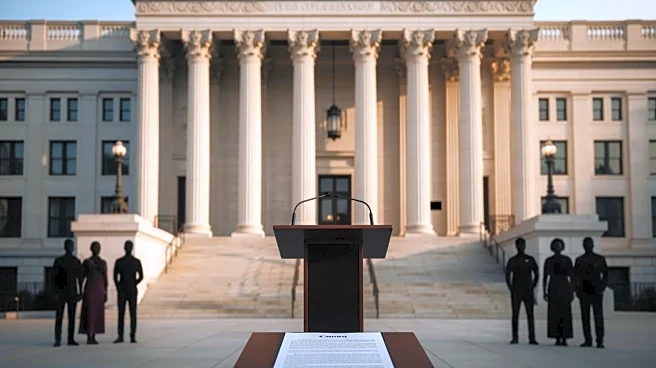What's Happening?
Chief Judge Timothy Evans of the Cook County Circuit Court has issued an order prohibiting warrantless civil arrests at Chicago-area courthouses. This order, effective from October 15, 2025, reaffirms
the common law privilege against civil arrest while attending court, ensuring that defendants, witnesses, and other parties cannot be arrested without a judicial warrant. The decision comes in response to the Trump administration's intensified immigration enforcement, which has seen federal agents detaining individuals around Chicago and its suburbs. The Cook County Public Defender's office, along with various activist groups and legal aid clinics, had requested this order to prevent federal immigration agents from targeting individuals complying with court orders or supporting loved ones.
Why It's Important?
The order is significant as it addresses concerns over the impact of aggressive immigration enforcement on the judicial process. By prohibiting warrantless arrests, the order aims to protect the integrity of the court system and ensure that individuals can participate in legal proceedings without fear of detention. This move could influence public policy by encouraging other jurisdictions to adopt similar measures, potentially leading to broader legislative action at the state level. The decision is a response to the chilling effect that Immigration and Customs Enforcement activities have had on courthouse operations, highlighting the tension between federal immigration policies and local judicial practices.
What's Next?
The Cook County Public Defender's office has urged the Illinois General Assembly to pass legislation that would codify a statewide prohibition on warrantless civil arrests at courthouses. This legislative action could set a precedent for other states to follow, potentially leading to a nationwide shift in how immigration enforcement is conducted in relation to court proceedings. Stakeholders, including legal advocacy groups and immigrant rights organizations, are likely to continue pushing for similar protections in other jurisdictions, while federal agencies may need to reassess their enforcement strategies in light of these legal developments.










